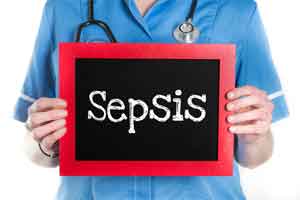- Home
- Editorial
- News
- Practice Guidelines
- Anesthesiology Guidelines
- Cancer Guidelines
- Cardiac Sciences Guidelines
- Critical Care Guidelines
- Dentistry Guidelines
- Dermatology Guidelines
- Diabetes and Endo Guidelines
- Diagnostics Guidelines
- ENT Guidelines
- Featured Practice Guidelines
- Gastroenterology Guidelines
- Geriatrics Guidelines
- Medicine Guidelines
- Nephrology Guidelines
- Neurosciences Guidelines
- Obs and Gynae Guidelines
- Ophthalmology Guidelines
- Orthopaedics Guidelines
- Paediatrics Guidelines
- Psychiatry Guidelines
- Pulmonology Guidelines
- Radiology Guidelines
- Surgery Guidelines
- Urology Guidelines
Low-dose steroids decrease duration of illness in septic shock

In adults with septic shock treated with low dose corticosteroids, the duration of shock, mechanical ventilation, and ICU stay are reduced, according to a systematic review published in the journal Intensive Care Medical. Septic shock is a serious medical condition that occurs when sepsis, which is organ injury or damage in response to infection, leads to dangerously low blood pressure and abnormalities in cellular metabolism.
Sofie Louise Rygard and his associates conducted a study to assess the effect of low dose corticosteroids on outcomes in adults with septic shock.
The study systematically reviewed randomized clinical trials (RCTs) comparing low-dose corticosteroids to placebo in adults with septic shock. The primary outcome was short-term mortality. Secondary and tertiary outcomes included longer-term mortality, adverse events, quality of life, and duration of shock, mechanical ventilation and ICU stay.
There were 22 RCTs, including 7297 participants, providing data on short-term mortality. In two low risk of bias trials, the relative risk (RR) of short-term mortality with corticosteroid versus placebo was 0.98. In low risk of bias trials, the risk of experiencing any adverse event was higher with corticosteroids.No trial reported quality of life outcomes. Duration of shock, duration of mechanical ventilation and ICU stay were shorter with corticosteroids versus placebo.
The study found that treatment with corticosteroids had no effect on either short-term or longer-term mortality. Adverse events were increased in patients assigned to corticosteroids. The time to resolution of shock was shorter, as was the duration of mechanical ventilation, and ICU admission. The use of corticosteroids was not associated with increased incidence of secondary infection.
The results of this systematic review provide an evidence for clinicians regarding decisions to use corticosteroids in adult patients with septic shock.
The study concluded that in adults with septic shock treated with low dose corticosteroids, short- and longer-term mortality are unaffected, adverse events increase, but the duration of shock, mechanical ventilation and ICU stay are reduced.
For more reference log on to: https://doi.org/10.1007/s00134-018-5197-6

Disclaimer: This site is primarily intended for healthcare professionals. Any content/information on this website does not replace the advice of medical and/or health professionals and should not be construed as medical/diagnostic advice/endorsement or prescription. Use of this site is subject to our terms of use, privacy policy, advertisement policy. © 2020 Minerva Medical Treatment Pvt Ltd